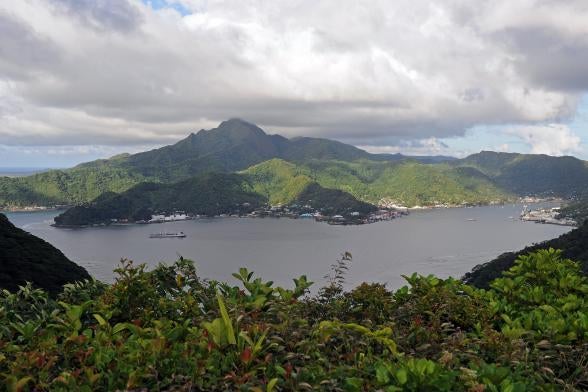After an Appeals Court ruling on Friday, American Samoa remains the only place in the United States where U.S. citizenship is not granted at birth.
As my colleague Mark Joseph Stern explained recently, anyone born in the other four unincorporated U.S. territories—Guam, the Northern Mariana Islands, Puerto Rico, and the U.S. Virgin Islands—automatically becomes a citizen. But things work differently in American Samoa, a group of islands 2,500 miles southwest of Hawaii. Samoans can only claim citizenship if they have a parent who was a citizen; otherwise, they have to go through the same naturalization process of non-Americans.
The reasons for this date back to a series of bizarre and racist court decisions from the early 20th century known as the “Insular Cases.” In those cases, the court distinguished between “incorporated territories”—those destined for eventual statehood, such as Arizona and New Mexico—and the “unincorporated territories” recently acquired in the Spanish American War. The justices at the time were fairly open about the dangers they saw in granting citizenship to “uncivilized races.”
Birthright citizenship has since been extended to the other four territories by statute, but Samoa remains anachronistically classified as an overseas possession. The lawsuit the court ruled on today argued that the distinction violates the 14th amendment. As one of the plaintiffs in the case wrote back in 2012, “We are treated differently when traveling abroad to places like independent Samoa, we face greater difficulties when sponsoring foreign national family members to immigrate to or visit the mainland United States, we are ineligible for certain jobs at the state and federal level, and we are denied the right to vote in every state.”
Interestingly, the government of American Samoa didn’t support the case, filing a brief arguing that U.S. citizenship would pose a threat to Samoa’s cultural autonomy, in particular a communal land system, fa’a Samoa. Under the policy, communally owned land can only be sold to someone with at least 50 percent Samoan ancestry.
Today, the U.S. Court of Appeals for the District of Columbia Circuit ruled against the plaintiffs, ruling that the 14th amendment does not apply to overseas territories, leaving a bizarre vestige of U.S. colonialism in place.
As it happens, it was a busy day for the overseas territories in the courts: In a more encouraging ruling, a federal judge’s decision made Guam the first territory to recognize gay marriage.
